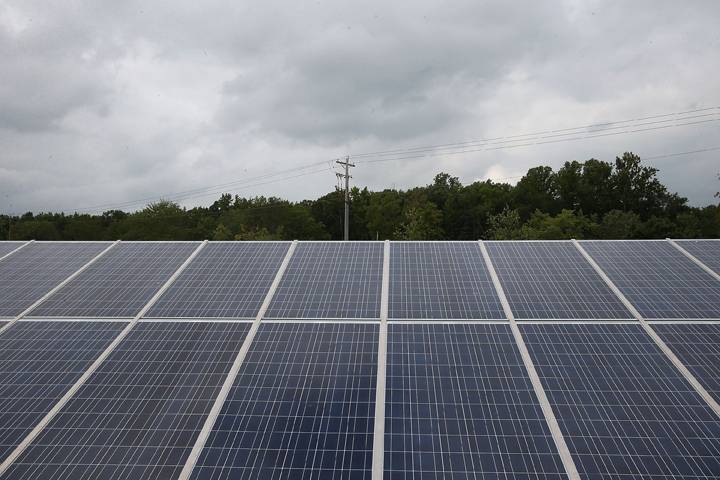Edmonton city council will consider massive building retrofits, even demolition and starting over in some cases, when a new greenhouse gas (GHG) management plan is presented next month.

The city isn’t close to reaching its emission reduction targets and will have to think of new ways to hit them during the next four-year capital project cycle.
Emissions are starting to level off, but they’re still increasing. That’s because when the targets were first set, the city didn’t take growth into consideration.
“That was the biggest thing that caught us off guard in the last four years is that our overall building stock, in terms of overall square footage, increased by 50 per cent and we didn’t project that accurately enough this last time around,” Jason Meliefste, the city’s branch manager for infrastructure planning and design, told council’s executive committee on Thursday.
City staff are wrapping up a GHG management plan that the committee was told will have five areas of focus, including recommendations on the best way to invest to get the biggest bang for their buck.
Meliefste told councillors that improving the condition of Edmonton’s buildings is a relatively small part of the overall strategy. The largest segment — as much as potentially two-thirds of it — is getting off fossil fuels and moving to renewables.
“When you look at our ability to achieve that target, it’s more to do with our ability to look at how we procure energy,” he said.
- Stuck in B.C. lagoon for weeks, killer whale calf is finally free
- Invasive strep: ‘Don’t wait’ to seek care, N.S. woman warns on long road to recovery
- T. Rex an intelligent tool-user and culture-builder? Not so fast, says new U of A research
- Nearly 200 fossil fuel, chemical lobbyists to join plastic treaty talks in Ottawa
The energy transition strategy expects solar power uptake in Edmonton will increase this year with the launch of a new solar map showing the energy potential of roofs. The city is also counting on provincial rebates.
Long-term projects like LRT, the Blatchford development and new projects such as the Corporate Climate Leaders program will also work towards the 2035 reduction goal.
The big problem as the committee heard, is how to pay for it. David Dodge, the city’s chair of the energy transition advisory committee, said renewable energy is becoming more and more affordable, so borrowing and investing should be explored.
“We know they (investments in renewables) make sense over a longer period of time. If there’s a kind of financing that’s slow and patient, we would just do those things. We wouldn’t even have to wait for budget cycles because they already make sense. We know that and we can prove it.”
That’s where the federal government can play a role, Mayor Don Iveson said.
“We’ve had lots of conversations about how the infrastructure bank could potentially be a financing mechanism for some of these energy efficiency programs or emission-reduction programs that have an economic payback,” he said.
“That’s not a one- or two-year payback, but maybe a five- or 10- or 15- year payback,” he told reporters. “If you bundle enough of it together, it might be attractive to an institutional investor and when you add all of the other incentives into it, it becomes an attractive proposition.”
As for the notion that some buildings may need to be torn down, some of which Councillor Ben Henderson described as a “sieve,” Dodge warned that they shouldn’t rush into anything.
“Do the analysis. Somebody might come to you and say, ‘We can put a new boiler in that building and we can make it 20 per cent more energy efficient.’ Well, don’t just make that decision. Do the assessment. So if you decide this building isn’t worth even that small amount of money on a small retrofit, and you know you’re going to demolish it six years from now in the next budget cycle, don’t invest anything in it. Invest in something that is going to have a longer term impact.”
Mike Mellross, the city’s program manager for energy transition, was reluctant to give details on return-on-investment targets, saying they’ll be shared with city council in the greenhouse gas management plan that will have detailed emissions data and future emission projections. That will be released for the May 29 meeting.







Comments